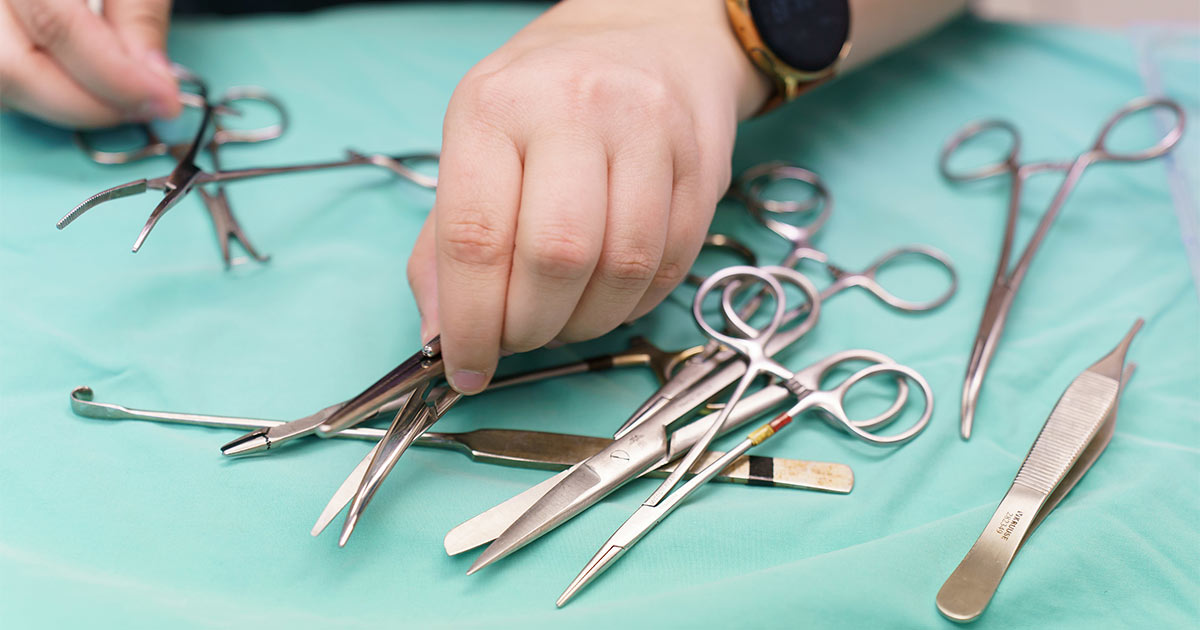
Surgical Services
Pet Surgeries & Procedures
Ridgeview Animal Hospital offers a variety of routine surgical services, including:
- Spay/neuter
- Lump/tumor biopsy and removal
- Hernia repair
- Laser declawing
- Cystotomy
- Splenectomy
- Mastectomy
- Dental procedures/extractions
- Ear hematomas
- Laceration/wound repair
- C-sections
- Abdominal exploratory/foreign body removal
- Amputations
- Enucleations
- and other advanced soft tissue surgeries
For additional surgeries, we may refer our cases to one of our network hospitals.
We understand that it can be stressful when your pet needs surgery. The skilled, experienced veterinarians and staff at Ridgeview Animal Hospital will walk you through every step of the procedure.
Many families will still have questions about various aspects of their pet’s surgery. Please look over the information below and if you still have concerns, don’t hesitate to give us a call at (402) 333-3366
Is anesthesia safe?
Today’s modern anesthetic monitors have made surgery much safer than in the past. Here at Ridgeview Animal Hospital, we do a thorough physical exam and pre-op blood testing on your pet before surgery to ensure they are healthy enough to undergo anesthesia. Even apparently healthy animals can have serious organ system problems that cannot be detected without blood testing. We also adjust the amount and type of anesthetic used depending on the health of your pet. All our surgical patients receive IV fluids during their procedure, and if serious problems are detected, surgery will be postponed.
What do I need to know prior to surgery?
After scheduling your appointment, we will send a Surgical Consent online form via email for you to complete. Please complete and submit once received. A team member will then call you prior to surgery to review your consent form, provide further pre-surgical instructions, and answer any questions.
It is important that surgery is done on an empty stomach to reduce the risk of vomiting during and after anesthesia. You will need to withhold food for 10 hours before surgery. Water can be left down for the pet.
Will my pet have stitches?
For many surgeries, we use absorbable sutures underneath the skin. These will dissolve on their own, and do not need to be removed later. Some surgeries, especially lump removals, do require skin stitches. With either type of suture, you will need to keep an eye on the incision for swelling or discharge. Most dogs and cats do not lick excessively or chew at the incision, but if that happens, we recommend an e-collar.
If there are skin sutures, these will need be removed 14 days after surgery. You will also need to limit your pet’s activity level for 5-7 days for most routine surgical procedures. No baths are allowed for the first 14 days after surgery.
Will my pet be in pain?
Anything that causes pain in people can be expected to cause pain in animals. Pets may not show the same symptoms of pain as people do; they usually don’t whine or cry, but you can be sure they feel it. Pain medications needed will depend on the surgery performed.
Can my pet have other procedures done while having surgery?
While your pet is under anesthesia, it is the ideal time to take care of other minor services such as teeth cleaning/polish, ear cleaning, or implanting a microchip. Please tell us if you are interested in adding additional services before your pet’s surgery so we can work up an estimate and allow for extra surgical time.
If you have additional questions or need to make an appointment, please call us at (402) 333-3366

